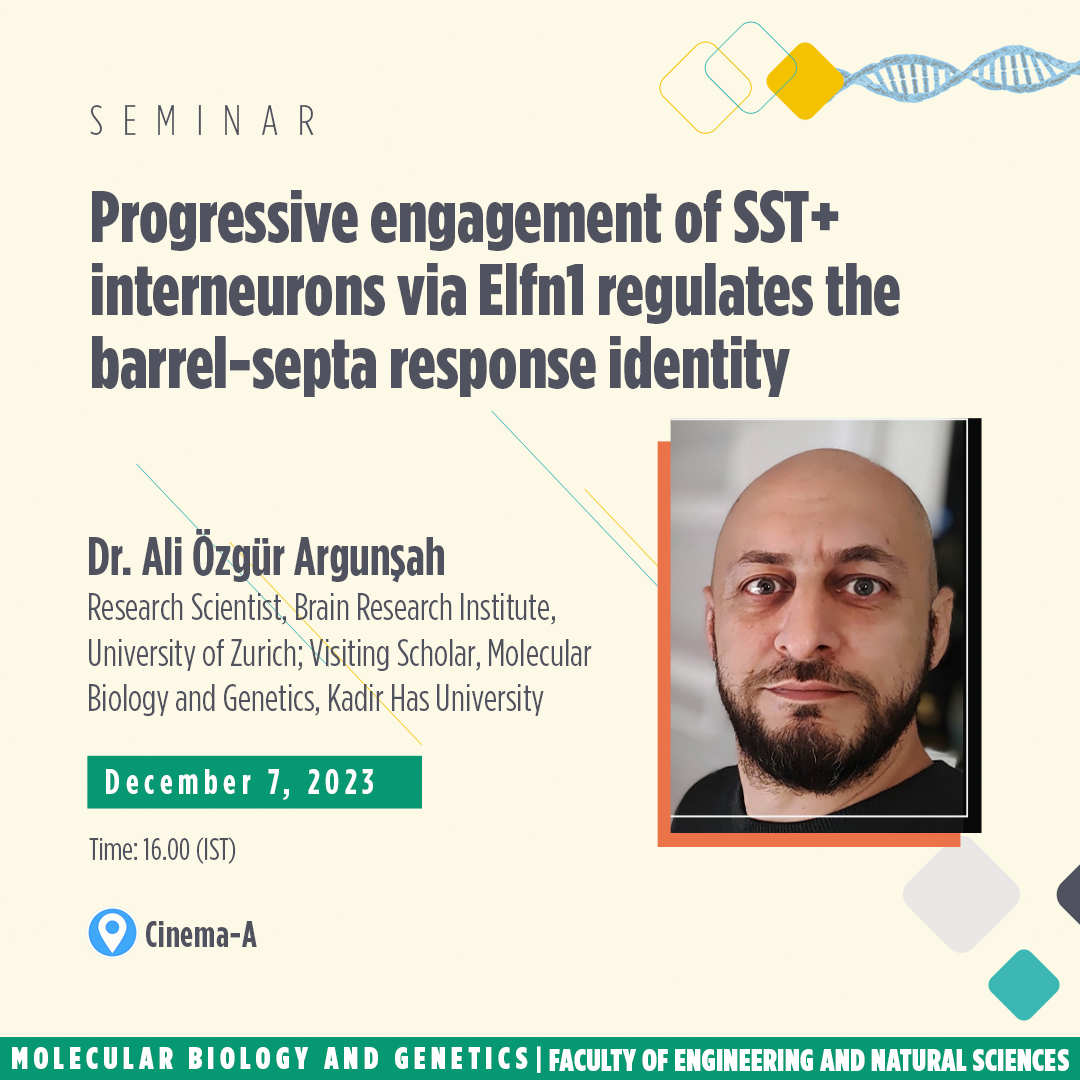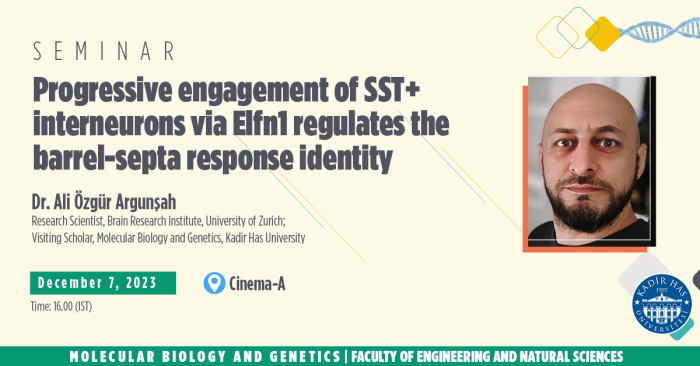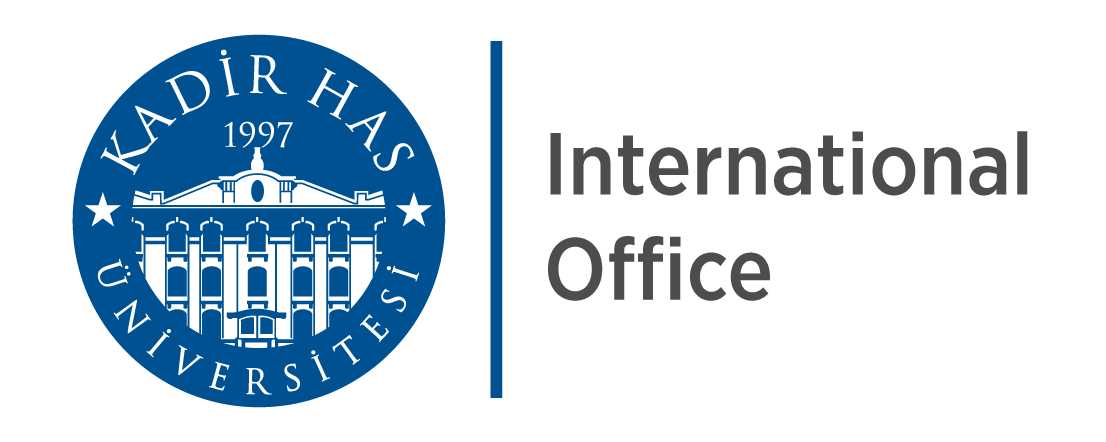
Molecular Biology and Genetics Seminars: Dr. Ali Özgür Argunşah

Dr. Ali Özgür Argunşah (the Brain Research Institute of the University of Zürich; Kadir Has University) will be the next guest of the seminar series organized by KHAS Molecular Biology and Genetics Department with his speech “Progressive engagement of SST+ interneurons via Elfn1 regulates the barrel-septa response identity” on Thursday, December 7 at 16:00 at Cinema-A.
Abstract: The vibrissae system of rodents, akin to human hands and fingers, provides somatosensory information coming from individual whiskers for object exploration and recognition. Just as perception through separated digits enhance somatosensation in humans, the ability of mice to sense objects through multiple whiskers in segregated streams is crucial. The segregation of this information starts at the whisker level and is maintained through their precise arrangement in the Brainstem → Thalamus → Cortex axis, forming structures known as barrels and spaces called septa. Here, we used silicon probes to record neural activity simultaneously in the barrel and septa domains of mice while stimulating at 10Hz. We discovered a temporal difference in the spiking activity between these domains. Through genetic fate-mapping, we found that inhibitory neurons labeled SST+ and VIP+ exhibited a layer-dependent preference for septa versus barrel domains. When we manipulated the temporal facilitation dynamics for these specific inhibitory neurons, we observed a significant reduction in the temporal response difference between the two cortical domains. Furthermore, our investigation, involving in-vivo tracing, whole-brain clearing, and light-sheet imaging, uncovered distinct projection patterns from barrel and septa to cortical regions S2 and M1. This led us to conclude that local cortical inhibition, facilitated by SST+ neurons in a temporally engaging manner, contributes to the functional separation of barrel and septa domains and potentially influences their downstream targets. In simpler terms, our findings shed light on how specific neurons and their short-term facilitation properties play a crucial role in organizing sensory information from whiskers in mice, similar to how human hands differentiate touch through different fingers.
About the Speaker: Ali Özgür Argunşah is a research scientist at the Brain Research Institute of the University of Zürich and a visiting scholar at Kadir Has University, Department of Molecular Biology and Genetics. With a comprehensive background in engineering, Ali transitioned from biomedical circuit design to the development of machine learning algorithms for EEG-based brain-computer interfaces during his master’s studies. His academic journey reached its zenith with a Ph.D. in neuroscience, where he specialized in synaptic plasticity, investigating the nuanced impact of naturalistic activity patterns on individual dendritic spines. Currently, Ali’s research is dedicated to unraveling the intricate biological foundations of neuronal circuit formation. His expertise extends across a spectrum of neuroscientific domains, encompassing synaptic plasticity, development of inhibitory circuitry, and the application of signal processing and machine learning methods to address key challenges in neuroscience.
